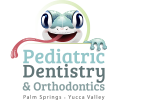Pediatric Dentists FAQs
What is a Pediatric Dentist?
A pediatric dentist is a dental specialist that has two to three years of additional training following dental school and is dedicated to the oral health of children from infancy through the teenage years. The very young, pre-teens, teenagers and children with special needs all require different approaches in dealing with their behavior, guiding their dental growth and development, and helping them avoid future dental problems. The pediatric dentist is best qualified to meet these needs.
First Visit, Establishing a “Dental Home”
Our office, as well as The American Dental Association (ADA), the American Academy of Pediatric Dentistry (AAPD) and the American Academy of Pediatrics (AAP) all recommend establishing a “Dental Home” for your child by one year of age. A dental home includes all aspects of oral health care. Children who have a dental home are more likely to receive appropriate preventative and routine oral health care which can help avoid visits to the emergency room.
How to Prevent Cavities
Good oral hygiene removes bacteria and left-over food particles that combine to create cavities. For infants, use a wet gauze or clean washcloth to wipe the plaque from their gums. Once your child’s teeth erupt, brush them at least twice a day. Use a smear or rice-size amount of fluoridated toothpaste for children under three years of age and a pea-size amount of fluoridated toothpaste for children over three years of age.
We recommend parents brush their child’s teeth until he or she can do it alone in a proper manner (typically around the age of nine). When brushing your child’s teeth, place a soft bristle toothbrush at a 45 degree angle along the gumline, gently brush all surfaces of the teeth in small circular motions. Flossing should begin when any two teeth touch, and only by a parent.
Healthy eating habits lead to healthy teeth. Like the rest of the body, the teeth, the bones, and the soft tissues of the mouth need a well-balanced diet. Children should eat a variety of foods from the major food groups and avoid snacks containing sugar.
Avoid putting your child to bed with a bottle filled with anything other than water. This will help prevent a serious form of decay among young children commonly referred to as early childhood caries. This condition is caused by frequent and long exposures of a child’s teeth to liquids that contain sugar. Among these liquids are milk (including breast milk), formula, fruit juice and other sweetened drinks.
Visiting a dentist every six months, as recommended by the American Academy of Pediatric Dentistry, will help your child establish a lifetime of good dental health.
Protective sealants may also be recommended by our office. Sealants can be applied to your child’s first permanent molars to prevent decay on hard to clean surfaces.
Why are Primary (Baby) Teeth so Important?
It is very important to maintain the health of the primary teeth.
Neglected cavities can and frequently do lead to problems which
affect developing permanent teeth. Primary teeth, or baby teeth,
are important for 4 main reasons.
Primary (Baby) Teeth:
- allow chewing and eating for proper nutrition, growth and development,
- provide space and help guide the permanent teeth into the correct positions,
- permit normal development of the jaw bones and muscles, and
- aid in speech development.
While the four front baby teeth (incisors) remain in place until approximately 6-8 years of age, the back baby teeth are not typically replaced by the permanent teeth until 10-13 years of age. The actual order and pace of eruption of your child’s teeth may vary.
